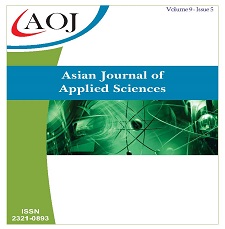Development of Various Source-Based Learning Models (BeBAS) Character-Oriented Education in Science Learning in Junior High School of City of Makassar
DOI:
https://doi.org/10.24203/ajas.v9i5.6732Keywords:
learning based on various sources (BeBAS), character educationAbstract
The aim of this research was to collect empirical data on the need for integrating science learning at the junior high school level, to develop a multi-source-based learning model (BeBAS) in character education-oriented science learning that is valid for junior high school students, and to develop an education-oriented multi-source based learning model (BeBAS) practical and effective character in science learning for junior high school students. This project is classified as research and development (Research and Development) since it focuses on the investigation of goods in the context of a multi-source-based learning model (BeBAS) geared towards character education in science learning. The Four-D model was used in this study as the production model. This model's design process consists of four stages: describe, design, create, and disseminate. This study was carried out at SMP Negeri 1 Makassar. The result of this research will be a model book that includes: (1) the rationality of the multi-source-based learning model (BeBAS) oriented towards character education, and (2) the ideas that favor the multi-source based learning model (BeBAS) oriented towards character education. (3) guidelines for implementing a multi-source learning model based on character education (BeBAS), and (4) the components of the multi-source learning model (BeBAS) oriented towards character education and learning tools with a character education-oriented multi-source learning model (BeBAS) in the form of Student Book, Student Worksheet, Learning Implementation Plan that has gone through stages (1) expert validation, (2) revision based on validator assessments, suggestions.
References
Astra IM, Wahidah RS. Peningkatan Keterampilan Proses Sains Siswa Melalui Model Guided Discovery Learning Kelas XI MIPA pada Materi Suhu dan Kalor. Jurnal Penelitian & Pengembangan Pendidikan Fisika. 2017 Dec 30;3(2):181–90.
Dalmeri D. Pendidikan Untuk Pengembangan Karakter (Telaah terhadap Gagasan Thomas Lickona dalam Educating For Character). Al-Ulum. 2014 Jun 1;14(1):269–88.
Downloads
Published
How to Cite
Issue
Section
License
Copyright (c) 2021 Suaib Ramli, Patta Bundu, Anshari

This work is licensed under a Creative Commons Attribution-NonCommercial 4.0 International License.
- Papers must be submitted on the understanding that they have not been published elsewhere (except in the form of an abstract or as part of a published lecture, review, or thesis) and are not currently under consideration by another journal published by any other publisher.
- It is also the authors responsibility to ensure that the articles emanating from a particular source are submitted with the necessary approval.
- The authors warrant that the paper is original and that he/she is the author of the paper, except for material that is clearly identified as to its original source, with permission notices from the copyright owners where required.
- The authors ensure that all the references carefully and they are accurate in the text as well as in the list of references (and vice versa).
- Authors retain copyright and grant the journal right of first publication with the work simultaneously licensed under a Attribution-NonCommercial 4.0 International that allows others to share the work with an acknowledgement of the work's authorship and initial publication in this journal.
- Authors are able to enter into separate, additional contractual arrangements for the non-exclusive distribution of the journal's published version of the work (e.g., post it to an institutional repository or publish it in a book), with an acknowledgement of its initial publication in this journal.
- Authors are permitted and encouraged to post their work online (e.g., in institutional repositories or on their website) prior to and during the submission process, as it can lead to productive exchanges, as well as earlier and greater citation of published work (See The Effect of Open Access).
- The journal/publisher is not responsible for subsequent uses of the work. It is the author's responsibility to bring an infringement action if so desired by the author.

